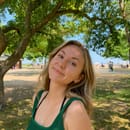With the world being in such a crazy state right now and most of us not being allowed to leave home, many of us have taken the opportunity to work on ourselves and our health. The difficult aspect of this is trying to figure out where to start. Narrowing our focus to food, there’s an incomprehensible amount of information that we can find online. From food and health bloggers to the insane number of articles posted on different platforms, it can become quite overwhelming to find who to listen to and what advice to follow. Luckily, I had the chance to sit down with Yvanna Mesic, a Registered Dietitian with her B.Sc. in nutrition and dietetics from Brescia University College (virtually, of course). She was able to provide me with some eye-opening insight about health and wellness that she thinks everyone should know!
There is No Such Thing as “Bad Food”
I was just as shocked as you when I heard this. I can’t possibly fathom the idea that cake and candy aren’t bad for you (but too much is). While shocking, I’m definitely not complaining. Yvanna stresses that strictly classifying certain foods as ‘good’ and ‘bad’ can create a mental block. She uses the example of cake at a birthday party. Having a slice or two of cake isn’t as bad as you might think it is. Having these kinds of portions on occasion is more than okay. The key thing to remember is that all food should be eaten in moderation. Too much of one food is never good for you. While you should focus your main meals around a variety of nutritious foods, treating yourself once in a while isn’t a bad idea, and, more importantly, it shouldn’t be a guilt-inducing experience.
Dieting isn’t Always the Best Idea
For many people, their main objective when dieting is to lose weight fast and see massive improvement quickly. This is where the issue arises. Yvanna tells me that just as your body can’t gain an immense amount of weight overnight, it also can’t lose it. She explains that fast dieting or very restrictive dieting isn’t great because your body can’t adapt to your new weight if it’s achieved over a short period of time. When you “shock” your body by restricting food groups and your amount of intake, your body goes into “starvation mode.” Short term, your body will use the stored energy in your fat cells and you will begin to see some positive results. The trouble begins, however, when you resume your normal eating patterns. The body decides it needs to store the extra calories in your fat cells for when it may go into “starvation mode” again. This repeated weight gain is what leads to yo-yo dieting. Once you’re off the restricting diet, your body fills those fat cells again and might even create new ones. The weight-loss equation isn’t as simple as calories in vs. calories used. Stress, sleep, physical activity and hormones are just a few contributing factors. Small changes like adding an extra vegetable to your favourite pasta dish or switch your pasta to whole grain are key. If you’re truly concerned about your weight, ask your doctor to refer you to a dietitian to get personalized assistance.
Chew More
If you’re like me, then you probably have never paid attention to how many times you’ve chewed your food, especially if you’re extremely hungry. Yvanna tells me that our body has a delayed response to feeling ‘full’. Essentially, if you eat your food really fast, that ‘full’ feeling won’t set in until after you’ve eaten most or all of your meal (and potentially have overeaten). The more you chew, the more you’ll be aware of how your body feels and the more inclined you’ll be to listen to it. Also, as we all know, different foods possess different kinds of nutrients, and by chewing more and breaking them down, more of the inner nutrients are exposed and quickly absorbed by the body. Fun fact: the absorptive surface area of the small intestine is roughly 250 square meters – the size of a tennis court!
Don’t Trust Every ‘Health’ Blogger
Although many of these bloggers have good intentions when it comes to eating well and staying healthy, they may not present you with the most accurate information all of the time. Even the title ‘nutritionist’ is quite misleading as really anyone can claim to be one. Yvanna explains that the levels of regulation between becoming a nutritionist and a dietitian are extremely different. Dietitians are highly regulated whereas nutritionists aren’t at all. So, if you’re truly concerned about your health, talk to a doctor or an RD instead of solely relying on the information you’re presented with online.
Treat Every Food as a ‘Superfood’
We can easily be tricked into believing that only certain foods have miraculous health benefits and can change our life completely. The thing is that the term ‘superfood’ is really just used as a marketing ploy, according to Yvanna. While the food that’s being promoted in this manner definitely does have great qualities, it doesn’t mean that it sits at the top of the hierarchy of food. All fruits, vegetables, nuts and so on have important nutrients that are just as miraculous as the next. That’s why balancing a variety of food within your diet is so crucial (and for those as curious as myself, cake, unfortunately, doesn’t count in this category).
Hopefully, you made it through that information overload and more importantly learned something from it. It can definitely be tough knowing whether or not you’re truly eating well, but hopefully, this helped clear up at least some of that confusion. Ultimately, you need to do whatever puts you on your best path to mentally and physically feeling your best! Thanks for reading!



